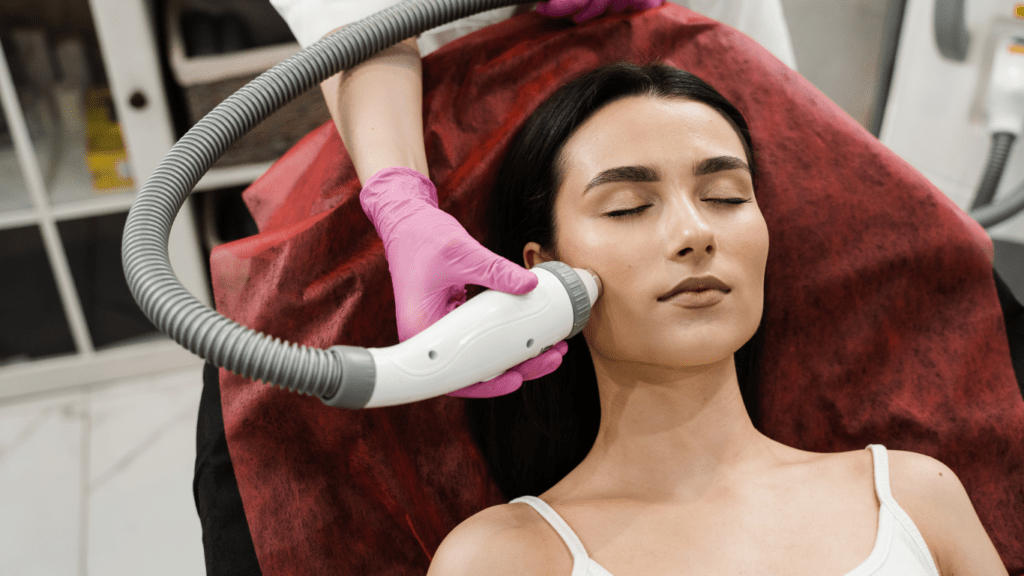Understanding the Top 10 Skincare Trends of 2024
In 2024, skincare trends show remarkable evolution, blending technology and personalization for optimal results. Here are two significant trends shaping the industry.
Technological Advances in Skincare
Innovations in tech radically change skincare routines. AI-powered skin analysis tools diagnose issues with precision, offering tailored solutions.
Devices like LED masks and microcurrent tools deliver salon-quality treatments at home. Brands integrate augmented reality for virtual try-ons, enhancing product selection. These advancements make high-tech skincare accessible and efficient.
The Rise of Personalized Skincare
Personalization dominates the skincare landscape. Brands use genetic testing and skin analysis to create bespoke products. Subscription services deliver customized formulations based on individual skin profiles.
Ingredients are selected to address specific concerns, ensuring efficacy. This approach maximizes benefits, revolutionizing how people care for their skin.
Natural and Sustainable Products
Natural and sustainable products dominate 2024 skincare trends. Eco-conscious consumers demand environmentally friendly practices.
Environment-Friendly Packaging
Brands commit to minimalistic, biodegradable packaging. Many use recycled materials (e.g., cardboard, glass) instead of plastic. Refillable containers gain popularity, reducing waste.
Companies introduce innovative packaging, such as mushroom-based or seaweed-based materials, to further sustainability. This shift not only benefits the planet but aligns with consumer values.
Vegan and Cruelty-Free Formulations
Skincare lines increasingly adopt vegan and cruelty-free formulations. Ingredients exclude animal-derived substances (e.g., beeswax, lanolin).
Brands ensure no animal testing during product development. Certifications from organizations like Leaping Bunny or PETA validate these claims, offering transparency.
Consumers prefer plant-based ingredients (e.g., aloe vera, chamomile) for their ethical and skin-friendly properties.
Influence of Gut Health on Skin
Increasing research shows a strong link between gut health and skin appearance. This relationship emphasizes the importance of a balanced microbiome for maintaining clear and healthy skin.
Probiotics in Skincare Products
Probiotics, beneficial bacteria, are now integral to many skincare products. They help restore the skin’s natural balance by counteract harmful bacteria.
Common examples include Lactobacillus and Bifidobacterium found in creams and serums. These probiotics enhance the skin’s barrier function, reducing inflammation and preventing issues like:
- acne
- eczema
Diet and Skin Connection
Diet significantly impacts skin health. Certain foods promote a healthy gut, which in turn reflects on the skin. Foods rich in fiber, like:
- fruits
- vegetables
support beneficial bacteria growth.
Fermented foods, such as yogurt and kimchi, provide natural probiotics that balance the gut microbiome. Conversely, high-sugar and high-fat diets can disrupt gut health, leading to skin problems like breakouts and dullness.
Minimalist Skincare Routines
Minimalist skincare routines focus on simplicity and effectiveness, emphasizing quality over quantity. These routines adopt fewer products with multifunctional benefits and cleaner formulations.
Multi-Use Products
Multi-use products have become a cornerstone of minimalist skincare. Combining the benefits of multiple products into one, they save time and reduce clutter.
For example, moisturizers with SPF offer hydration and sun protection. Tinted sunscreens provide coverage and UV defense. These versatile items simplify routines without sacrificing efficacy.
Streamlined Ingredients
Streamlined ingredients enhance the minimalist approach by prioritizing fewer but more potent components. Clean formulations avoid unnecessary additives.
Products with hyaluronic acid, vitamin C, or niacinamide serve diverse needs like hydration, protection, and anti-aging. Focused ingredients ensure each product’s purpose aligns closely with skincare goals.
The Future of Anti-Aging Treatments

Innovative anti-aging treatments are shaping skincare in 2024. The focus remains on delivering effective, science-backed solutions.
Next-Gen Ingredients
Cutting-edge ingredients are revolutionizing anti-aging. Peptides, such as Matrixyl and Argireline, boost collagen production and reduce wrinkles.
Bakuchiol, a plant-based retinol alternative, provides similar benefits without irritation. Additionally, stem cell extracts from plants enhance skin regeneration, promoting a youthful appearance. Hyaluronic acid variants now offer tailored hydration, targeting different skin layers.
Non-Invasive Techniques
Non-invasive treatments are gaining traction for their minimal downtime and effectiveness. Radiofrequency (RF) therapy tightens skin by stimulating collagen.
Microcurrent facials use low-level electrical currents to lift and tone facial muscles. High-intensity focused ultrasound (HIFU) targets deeper skin layers for lifting and tightening without surgery.
Laser treatments like fractional CO2 and erbium lasers improve skin texture and reduce signs of aging.


 Edward Strzelecki is a valued article writer at Body Care And Matter, known for his straightforward and accessible approach to health and wellness topics. With a focus on clarity and practicality, Edward's writing provides readers with easy-to-understand information that they can apply in their daily lives.
Edward Strzelecki is a valued article writer at Body Care And Matter, known for his straightforward and accessible approach to health and wellness topics. With a focus on clarity and practicality, Edward's writing provides readers with easy-to-understand information that they can apply in their daily lives.

